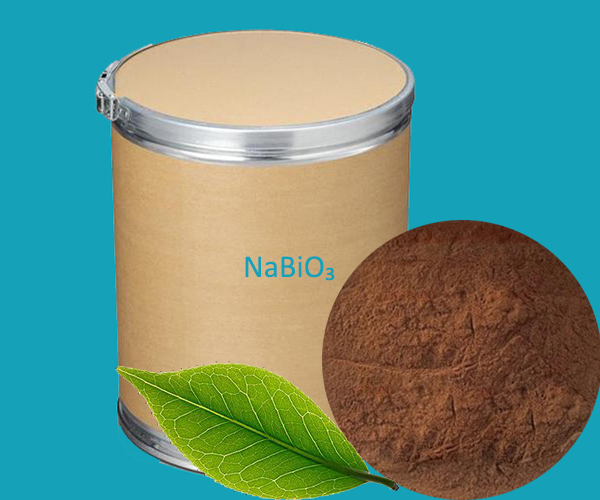Sodium bismuth (NaBiO₃) is a yellow to brown compound with strong oxidizing properties. It is an important chemical reagent used as an oxidant in analytical chemistry and organic synthesis. Sodium bismuth is particularly effective in alkaline or neutral conditions, with the ability to oxidize many organic compounds, including alcohols, aldehydes, ketones, and aromatic compounds.
Sodium bismuth is a versatile chemical reagent that has a wide range of applications in chemical synthesis and analytical chemistry, mainly due to its strong oxidizing properties. Here are some of the main uses of sodium bismuth:
1. Oxidant: In organic synthesis, sodium bismuth is used as a selective oxidant, especially in the oxidation of alcohols, aldehydes, ketones, aromatic compounds, and some heterocyclic compounds.
2. Analytical chemistry: In analytical chemistry, sodium bismuth can be used to quantify the concentration of certain elements, such as in the K-wire method for determining the nitrogen content in organic matter. It is also used in titration assays as an oxidizing agent to determine the content of reducing substances.
3. Water treatment: Sodium bismuth is used as a disinfectant and oxidant in water treatment to remove organic pollutants and micropollutants such as phenol, dyes, and certain drug residues from water.
4. Materials Science: In materials science, sodium bismuth can be used to synthesize novel bismuth-based materials that have potential applications in catalysts, electronic materials, and energy storage.
5. Metal refining: Sodium bismuth is used as an oxidizing agent in the metal refining process, especially when extracting certain metals from minerals.
 English
English Español
Español Português
Português Français
Français Deutsch
Deutsch Русский
Русский 中文
中文 日本語
日本語
